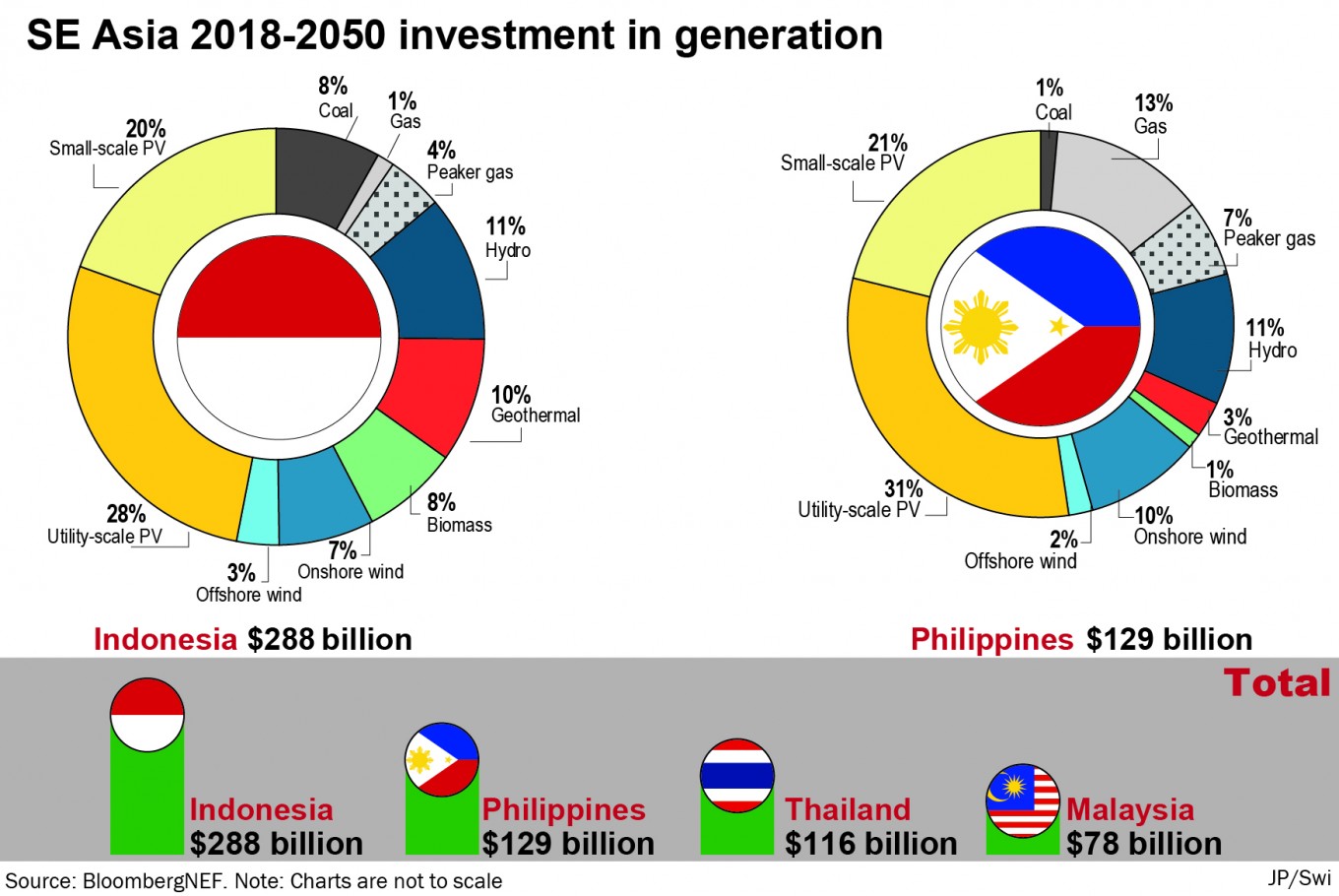Popular Reads
Top Results
Can't find what you're looking for?
View all search resultsPopular Reads
Top Results
Can't find what you're looking for?
View all search resultsInsight: Rebalancing Indonesia’s economy amid the pandemic
This change in economic polarity, followed by the global financial crises of 2008, has put economic globalization under pressure and stimulated the trade war phenomenon.
Change text size
Gift Premium Articles
to Anyone
T
he World Trade Organization's international trade statistics show that world merchandise dominance has been evolutionary, shifting from the United States to Asian countries. In 1948, the US share of world merchandise exports was 21.7 percent, while China and Japan had 0.9 percent and 0.4 percent, respectively. In 2015, after more than 65 years, the share of world merchandise exports held by China and Japan increased 14 and eight times, respectively, while the US share decreased by more than a half.
This change in economic polarity, followed by the global financial crises of 2008, has put economic globalization under pressure and stimulated the trade war phenomenon. Even more, the ongoing pandemic has added an extra burden to economic globalization. Globalization is now in hibernation mode as every country waits for its new normal while attempting to enhance its local economic role.
As COVID-19 rages, some Asian countries have shown a tendency toward economic recession, which is characterized by negative growth in two consecutive quarters. Japan displayed the likelihood in mid-May, followed by Singapore in mid-July and South Korea in the third week of July.
Economic contraction in these two East Asian economic giants and the hub of Southeast Asian trade and finance must affect the ASEAN economy. The three countries are significant sources of foreign direct investment (FDI) in Southeast Asia. Sooner or later Indonesia’s production networks and trade will be impacted.
Based on my calculation using the composite index model, Indonesia's trade and long-term investments are influenced by China, Japan, the US, India, Singapore and South Korea. Unlike China, the major economic partners are now struggling to escape from recession. This will inevitably affect Indonesia's economic achievement in 2020, particularly in the sectors that foreign investors play a dominant role in, like electronics, automotive, footwear and clothing. As these sectors contribute much to Indonesia's exports, Indonesia's trade will be at risk.
The latest Statistics Indonesia (BPS) export and import data in July shows that Indonesia's economy relies on its major trading partners in East Asia and ASEAN. The good news is, however, that Indonesian imports and exports still depend on a dense production network of electrical machinery, equipment and spare parts, and iron and steel, which indicates Indonesia's increasing linkage to the Asian production network.
ASEAN economic architecture is somewhat similar to a doughnut shape with no central power, as none of the member states is big in terms of economic size and high in terms of income level like those in Europe and North America. In ASEAN, the biggest economic member in terms of size, Indonesia is not yet a high-income country, whereas the wealthiest member state, Singapore, is not big in terms of size.
Given this complementary shape, the current economic contraction of East Asia and Singapore will affect ASEAN's economic network and influence Indonesia's external balance. How does Indonesia navigate such a situation?
In terms of product classification, Indonesia's manufacturing is dominated by food and beverages. However, using four analyses, namely comparative, competitive advantage, net exports and terms of trade, Indonesia's imports still rely on food and beverage-related products. This means that in these challenging times, Indonesia should augment its domestic food and beverage raw supplies to support its food and beverage manufacturing.
As raw materials are in the agriculture sector and located in rural areas, this network will increase value-added and competitiveness and reduce poverty. Around 60 percent of the poor live in rural areas, and because of the pandemic, many who lost jobs in urban areas have decided to return to their villages. Therefore, helping the rural economy means reducing poverty and providing new job opportunities.
Data show that the economy grew 5.07 percent in the first quarter of 2019 year-on-year. The agricultural and manufacturing sectors expanded 1.82 percent and 3.85 percent, respectively. The growth slowed in the first quarter of 2020 to 2.97 percent, with agriculture and manufacturing growing 0.02 percent and 2.06 percent, respectively. Empowering the agricultural and manufacturing sectors is very strategic as both sectors have performed below the total national economy before and since the pandemic. This effort, if successful, will significantly accelerate the country’s economic recovery.
Growth in the agricultural and manufacturing sectors will in turn stimulate the service sector. It is important to enhance the logistics system and connections between raw materials in rural areas and food and beverage manufacturing in urban areas. Logistics systems include financial inclusion, modern storage and offline and online marketplaces.
E-commerce will help farmers and fishermen expand their market access. Therefore, digitalizing the villages and connecting them to the online market place is very advantageous.
This economic transformation has to be carefully navigated amid the pandemic. Focusing on public health to contain the virus spread remains the primary condition. There are economic sectors that depend on containment of the virus as they require people’s movement and physical attendance, such as hotels, restaurants, transportation and construction. Data have confirmed that these sectors are slowing down amid the pandemic.
We never expected the pandemic would hit aggregate supply and demand and weaken the economy. In the face of this challenging and unprecedented situation, Indonesia has to rebalance its economic interests between domestic and global, rural and urban, and between economic recovery and public health safeguards.
-------
Special adviser on industry and international trade to the finance minister and lecturer at the School of Economics and Business at the University of Indonesia. The views expressed are his own.










